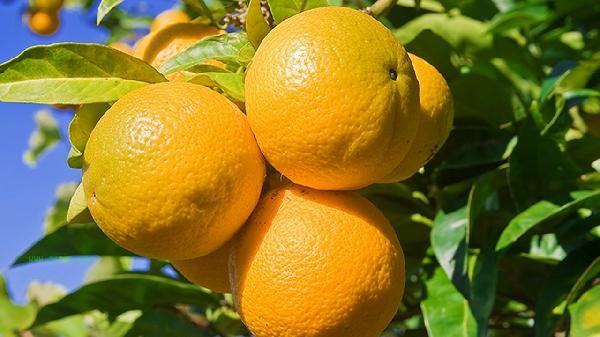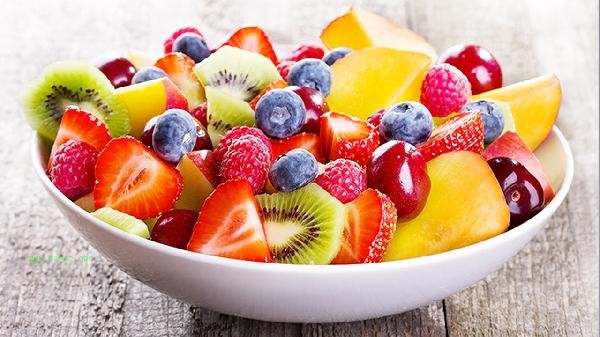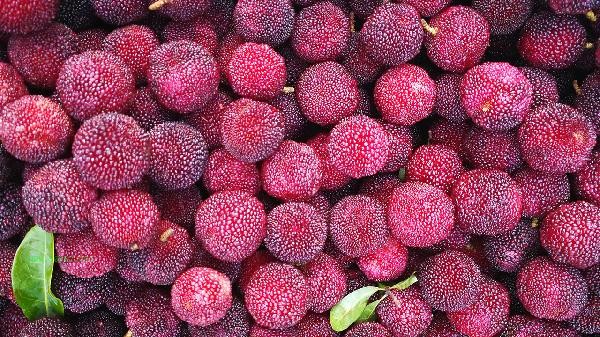Some fruit peels are not recommended for consumption. Common ones include persimmon peel, ginkgo peel, water chestnut peel, walnut peel, and pomegranate peel. These fruit peels may contain harmful substances or be difficult to digest, which may cause gastrointestinal discomfort or other health problems after consumption.

1. Persimmon skin
Persimmon skin contains a high amount of tannic acid, especially in immature persimmon skin where the tannic acid content is higher. Tannic acid may form sediment when combined with stomach acid, increasing the risk of gastric stones. People with weaker gastrointestinal function may experience symptoms such as bloating and nausea after consumption. It is recommended to thoroughly peel off the skin before consumption and choose fully ripe persimmons to reduce tannic acid content.
2. Ginkgo Peel
Ginkgo peel contains toxic ingredients such as ginkgolic acid and ginkgolic phenols. Direct contact may cause skin allergies, and ingestion can lead to toxic reactions such as vomiting and abdominal pain. Fresh ginkgo fruits should be handled with gloves, and the outer layer of flesh skin and inner membrane should be removed before consumption. Only the inner kernel part should be consumed. Children and individuals with allergies should avoid contact.
3. Water chestnut skin
Water chestnuts grow in mud, and their skin is prone to absorbing heavy metals and parasitic eggs. Eating raw water chestnuts with skin on them may cause parasitic infections or excessive intake of heavy metals. It is recommended to thoroughly clean with a hard bristled brush before peeling, or to boil and peel before consumption. People with spleen and stomach deficiency and cold should control their food intake and avoid raw and cold stimulation.

4. Caragana peel
Caragana peel has coarse and hard fibers and contains a small amount of oxalic acid, which may increase the metabolic burden on the kidneys for those with renal insufficiency. Excessive consumption by healthy individuals may also cause irritation of the oral mucosa or digestive disorders. Suggest cutting off the edges and skin, especially avoiding consumption on an empty stomach. Patients with chronic kidney disease should avoid eating starfruit and its products. Pomegranate peel is rich in alkaloids and tannins, and excessive intake can inhibit digestive enzyme activity, leading to constipation or colic. Although traditional medicine uses pomegranate peel boiling water to stop diarrhea, it is still necessary to remove the epidermis for ordinary consumption. Pregnant women and those with gastrointestinal sensitivity should pay special attention to avoid ingesting fruit peels or diaphragm parts.
Before daily consumption of fruits, it is necessary to fully understand their consumption taboos. Most fruits are recommended to be washed and peeled before consumption. Special populations such as children, pregnant women, and patients with digestive system diseases need to be more cautious. When handling fruits with skin, specialized fruit and vegetable cleaning agents can be used to soak them, and stubborn stains can be scrubbed with baking soda water. For fruit peels that are uncertain about their edibility, it is recommended to refer to food safety information published by authoritative institutions or consult a professional nutritionist. Developing the habit of eating without skin can effectively reduce the risk of pesticide residues and harmful substances intake, while paying attention to the interaction between fruits and drugs to ensure dietary safety.









Comments (0)
Leave a Comment
No comments yet
Be the first to share your thoughts!